WHY ARE FACTORIES DEEMED UNSAFE STILL OPERATIONAL?
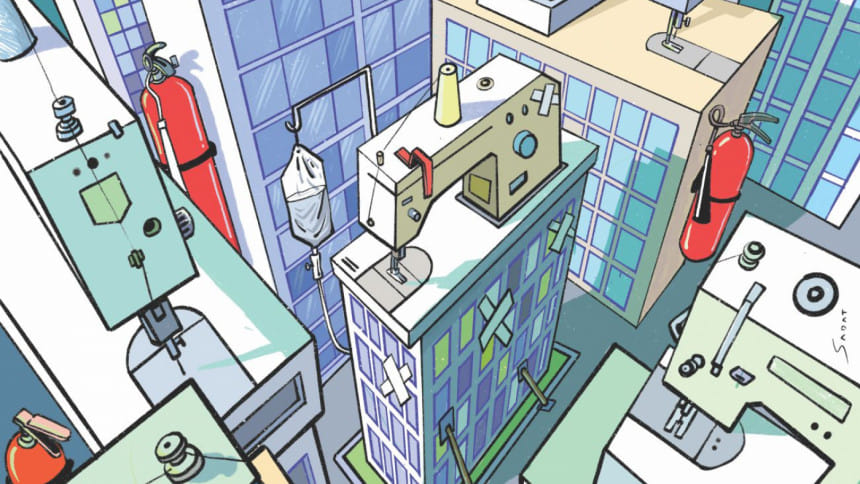
When the Accord and Alliance signed on different brands from all over the world after the Rana Plaza collapse in 2013, they pledged that the factories that these brands will do business with will ensure safe working conditions for the workers. The Accord has a selection of 1,563 factories that these brands can choose from, while the Alliance left behind 654 safe factories before wrapping up their Bangladesh operations at the end of last year.
Then there's a list of factories that even after much persuasion from these two initiatives, refused to fix their working conditions, or failed to fulfil the recommendations set by them. These factories—130 of which were terminated by Accord and 178 suspended by Alliance—have been unable to do business with big names like H&M, Primark, Nordstrom, and Walmart all these years.
But they have been doing business—many of them have been active even though the safety organisations deemed them too unsafe for operation.
Customers of these "terminated factories" include the world of buyers outside of the 219 big global brands which agreed to demand workplace safety from their suppliers. Export data from the business website Panjiva shows that at least 85 factories have successfully exported to the United States even after being suspended by the Accord and Alliance. Their customers are not big apparel giants like H&M and Primark, but rather buying-houses. These buying-houses act as middle-men or supply chain managers—they take orders from companies, and source clothes from suppliers like the factories in Bangladesh.
For example, Riverside Apparels Ltd was cut off from doing any business with the Accord signatories on November 28, 2016, but still succeeded in sending 479 cartons of denim shorts to the United States on February 23, 2018.
The four-storey factory, which is located close to Kalurghat ferry terminal in Chittagong, had sent two more such shipments to the United States in February—one being denim shirts, and the other, denim rompers.
All these shipments went to Skiva International Inc, a buyer located in a 43-storey skyscraper in the upscale district of midtown Manhattan in New York City. From Google Maps street view, it can be seen that the building is outfitted with a juice bar, a lobster cafe, a barbeque restaurant, a sushi joint and even a candy store. A suited concierge sits behind the welcome desk in a glinting, golden atrium. According to the building's website, they are equipped with such a modern fire safety system that "a 24-hour monitoring centre will automatically dispatch the Fire Department" and "building doors will automatically switch to an unlocked status if [the fire] alarm occurs after normal building operating hours".
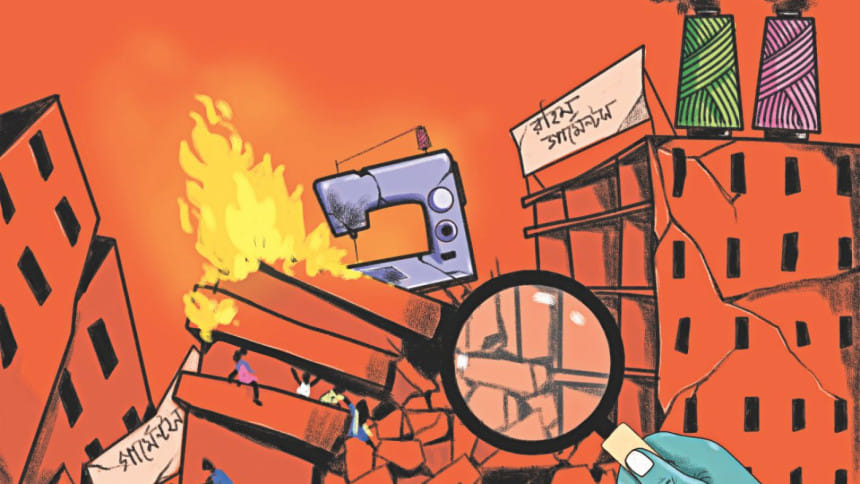
Meanwhile, one of the many reasons why Riverside Apparels Ltd was terminated from the Accord was fire safety. It suspended the factory when it failed to install fire alarms and fire doors. In its termination statement, the Accord said that the factory had also failed to remove locking features from doors used for exits, putting workers at risk of getting locked in during a fire. Other points raised by the Accord included the discovery of hairline cracks in walls and beams, that remained unaddressed by the factory.
"We are still able to get business in spite of getting suspended by the Accord. There are some companies that don't give importance to the Accord. They are the ones doing business with us," says Golam Kibria, the managing director of Riverside Apparels, "Skiva International is one of these buyers."
"We also have other buyers in Poland and South Korea," adds Kibria. He says that the one grievance he has is that these companies do not agree to pay as much for the "cost of making" or the money paid to produce per unit of garment—which is one of the main areas where factories turn in profits.
"They say that because we are not an Accord-certified factory, we cannot demand higher prices," says Kibria.
Just across the road from Skiva International, housed in a very similar skyscraper is Golden Too Inc. The building stands out because of how it incorporated art galleries seamlessly into its interior architecture—floor-to-ceiling technicolour artwork grace even the restrooms. Located on the 8th floor of this building is Golden Too Inc, which is a wholesale importer of apparel, with its top imports being dresses, sweaters, and pullovers.
This wholesale importer gave business to three factories suspended by the Accord months, and even years, after the signatory brands ceased all operations with them.
One was Haesong Corporation Ltd, a factory in Kaliakair, Gazipur, that the Accord says has 6,000 workers. As per the termination notice, the Accord ceased all relations with the factory on November 2016, for "the submission of falsified concrete strength test results".
Golden Too Inc bought 14,917 kilograms of women's acrylic sweaters from this factory in August 2017. It also bought three shipments of sweaters from Padma Sweaters between September and October of 2018—this factory was declared ineligible for business by Accord signatories in March 2016 for not having adequate fire protection (not having fire doors, failing to keep exit gates unlocked).
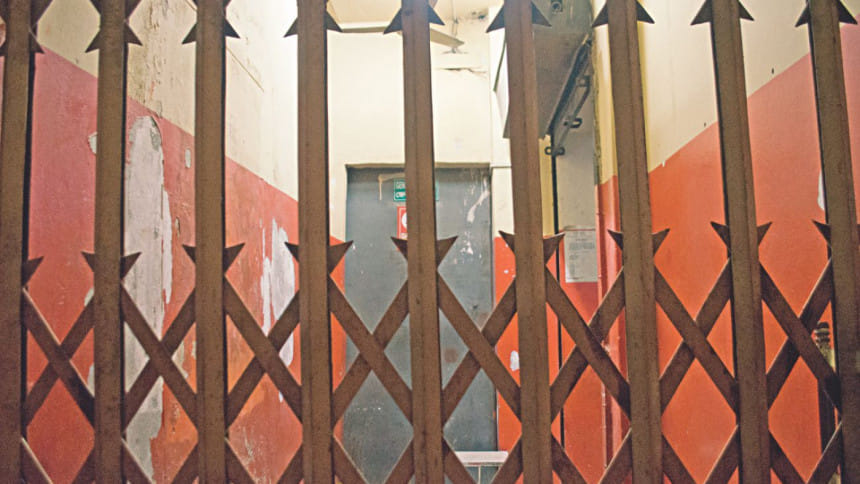
The importer bought a shipment of clothes from a factory suspended by the Accord, as recently as last month—Samsons Winterwear Ltd was terminated in February 2018, but sent three shipments of ladies sweaters to Golden Too Inc between March 8 to March 22, 2019. In addition to not having adequate fire safety, the factory failed to "[f]ix the problems with the building structure. This could result in the failure of the structure and injuries to workers," as per the statement released by the Accord.
The Accord says that when it suspends a factory, it hands over all responsibility to the government department with the executive powers to shut the factory down, i.e. the Department of Inspection of Factory and Establishments (DIFE).
"The Accord writes to the DIFE Inspector General (IG) to inform DIFE that the Accord will no longer conduct inspections and verification at such factory buildings and therefore, they should follow up (i.e. the building becomes the responsibility of the DIFE and the Remediation Coordination Cell)," says Rob Wayss, executive director of Bangladesh operations at the Accord.
The Accord communicates the reason(s) why such action is being taken, and hands over all records of their dealings with the factory, including their inspection reports, and progress reports of how much of the remediation had been completed.
"When the Accord notifies the IG of DIFE and provides the historical files for the factory/building, the IG of DIFE determine the follow-up, inspections, remediation verification, and/or enforcement efforts applied to such buildings and factories," says Wayss.
As the Alliance is currently not in operation anymore, we could not ask them what procedures they maintained once they suspended a factory.
So what has the DIFE done with the factories once they have been handed over? Not much yet, it seems.
"Most of these factories seem still operational and no further action has been taken by DIFE to close them or compel them to remediate," says Joris Oldenziel, deputy director for implementation at the Accord.
"We have just started work on the factories terminated by the two safety organisations," says Farid Ahmed, additional inspector-general overseeing the department of safety at DIFE. When asked how many of these factories that were suspended by the Accord have been inspected so far, he says, "We've only been at it for about a week, how many do you think we can get done in a week?"
Around 48 of the factories suspended by the Accord were "handed over" to DIFE as early as 2016, 27 in 2017, and 33 last year. Since then there have been no surveys on the conditions of the factories, what state they are in, whether they are still running—and especially—whether they need to be shut down.
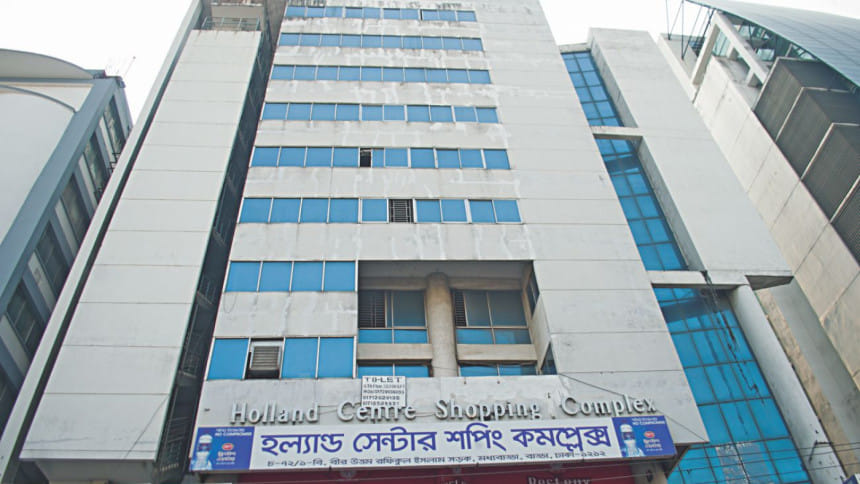
"We have not given any directive to shut down any factories suspended by these safety organisations," says the inspector-general of DIFE, Shibnath Roy, "because they are under our wing and we intend to nurse them back to compliance. The government is taking many initiatives to do so, for example, we have expanded our force of engineers by 60 people."
"You cannot just shut down a factory—there are jobs and bank loans involved," says Mohammed Anwar Ullah, additional director-general of the Department of Labour. Anwar Ullah was a former additional inspector-general of DIFE. "We also have to verify why these factories were suspended—whether it is indeed for being failing to comply to safety standards, or because of vested interests," he adds.
Almost all the factories were suspended because they did not have important fire-protection measures—like fire alarms, sprinklers, fire exits, and fire doors. This is not just a requirement set by the Accord and Alliance, but also something that all these factories are legally bound to do under Bangladeshi law. The Bangladesh National Building Code mandates that all buildings must have adequate fireprotection, and this law is even more pertinent in the case of industrial buildings like garments factories. By not having fire protection, the factories are breaking the law, which should be reason enough for government agencies with executive magistracy powers to shut them down.
Take Suman Fashion Garments Ltd, for example. The factory which is located in Badda, has 1,600 workers and not a single fire door or a fire alarm system. It was for that reason that the factory was terminated from the Accord in 2016. Star Weekend's photographer visited the factory this week, and still found it operational. In January last year, they sent a shipment of jackets, blazers and pants to the US—to a company called Diana Import Inc, which too is based out of New York, and deals in ladies garments, home furnishings, and denim wear.
Meanwhile, as the Alliance quit the scene at the end of last year, questions arose about what will happen to the factories that the safety organisation had suspended.
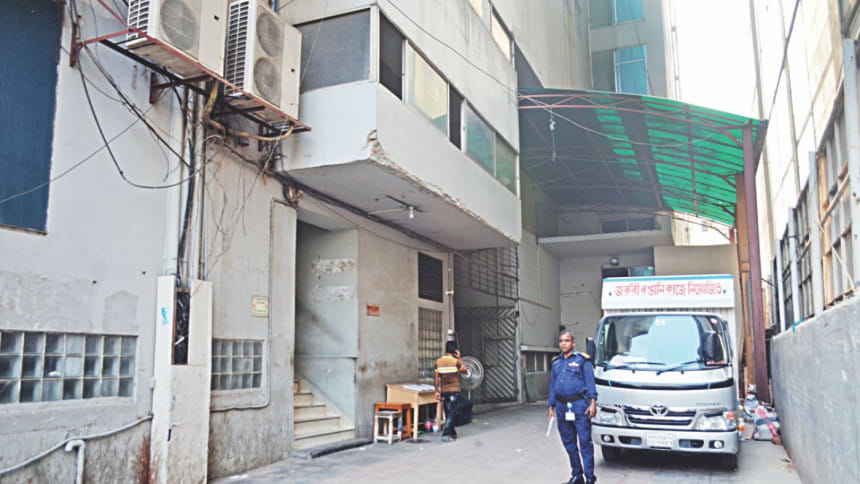
Before the Accord and Alliance entered the scene, six years ago, the big fashion brands had no qualms about doing business with unsafe factories e.g. Primark and Walmart were both sourcing clothes from Rana Plaza. Will big brands go back to doing business with them?
Bangladesh Garments Manufacturers and Exporters Association's chairperson and industry veteran Rubana Huq does not think so. The responsibility of the factories Alliance was overseeing was given over to a local organisation called Nirapon, that signed on 23 of Alliance's brands as members. "It is highly unlikely that a factory which was terminated earlier will be able to do business with the brands aligned with Nirapon," says Huq.
However, Nirapon is not—as they put it themselves—an organisation whose membership comes with binding rules regarding what factories brands can source from. "Nirapon is not a regulatory agency, but a member organisation tasked with serving as a single point of contact between its member brands and factories on factory safety issues. Nirapon will have no authority to suspend factories, instead, leaving sourcing decisions to each of its members," reads its press statement.
"If the brands want to work with the suspended factories, we will work with the factories to make sure they are compliant," says Md Yazdani Ul Islam, the communications manager of Nirapon.
But at the end, while signatory bodies like Accord, Alliance and now Nirapon, are important for having the authority to guide brands into choosing safe factories, they are not enough. Even after they suspended factories for harbouring unsafe working conditions, the factories continued to run, and were successful in finding buyers. How then, does one ensure accountability in an industry where the buyers themselves are not willing to ensure safe work-places?
"That effort needs to come from the government. They need to make sure the factories are providing safe working-conditions," says Kalpona Akter, executive director of Bangladesh Centre for Worker Solidarity.
"We are pressurising more brands to join us, but there will be companies who cannot be convinced."
She is right. Getting all the brands, all the buying-houses, importers and supply chain managers to agree to only source from safe factories would be a gargantuan task. If a factory is cut off from doing business with one brand, it will find another. The industry needs to think of safer alternatives.

 For all latest news, follow The Daily Star's Google News channel.
For all latest news, follow The Daily Star's Google News channel. 



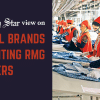



Comments